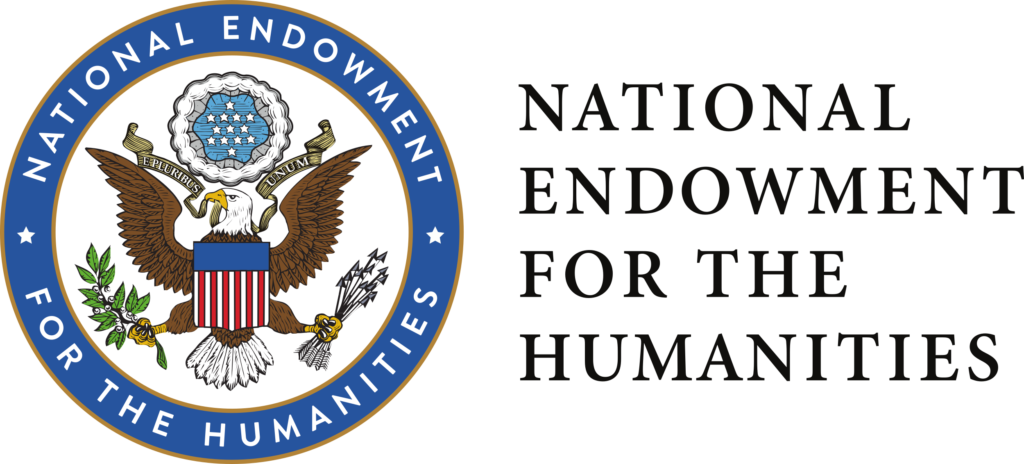Before You Apply
Before you attempt to complete an application, please study the project website, which contains detailed information about the topic under study, project requirements and expectations of the participants, the academic and institutional setting, and specific provisions for lodging and subsistence.
Program Purpose
NEH-funded institutes are professional development programs that convene K-12 educators or higher education faculty from across the nation in order to deepen and enrich their understanding of a variety of topics in the humanities and enrich their capacity for effective scholarship and teaching.
Each institute allows 25 to 36 participants to study a humanities topic with a team of experienced scholars. Because this larger format emphasizes the range of perspectives that can be brought to a topic, an institute typically has more and longer meetings per week than a seminar. Project leaders and participants mutually explore connections between scholarship and teaching, and some time is provided for work on individual or collaborative projects.
Eligibility
Please see the NEH Participant Eligibility Criteria for eligibility guidelines for NEH seminars and institutes for college and university faculty. Note that this Institute is intended for teachers in higher education. Community college faculty, contingent faculty, and faculty at four year institutions are encouraged to apply, as are independent scholars, scholars engaged in museum work, and PhD students who have passed their qualifying exams.
Principles of Civility
Please see the NEH Principles of Civility for guidelines on civil discourse during this institute.
Participant Stipends
Each participant will receive a stipend of $2,850. This stipend is intended to help cover travel, housing, meals, and basic academic expenses. Stipends are determined according to the format and duration of the summer program, and are taxable as income. Half will be paid at the beginning of the program, and half at the end. $580 will be automatically deducted from the stipend for housing at Scripps College during the residential portion of the institute. The cost for some meals at the Scripps College cafeteria will also be automatically deducted.
Participant Expectations
Project applicants who accept an offer to participant are expected to remain during the entire period of the program and to participate in its work on a full-time basis. Please note that there will be morning and afternoon sessions on Monday, July 4. If a participant is obliged through special circumstances to depart before the end of the program, it shall be the recipient institution’s responsibility to see that only a pro rata share of the stipend is received or that the appropriate pro rata share of the stipend is returned if the participant has already received the full stipend. Participants are required to submit a project evaluation.
Checklist of Application Materials
A complete application consists of the following items:
- – completion of this Google form asking for participant data and contact information. You will upload all other application materials through this Google form.
- – a curriculum vitae, no more than four pages long
- – contact information for two professional references
- – an application essay as outlined below.
The Application Essay
The application essay should be no more than two double spaced pages. It should address your interest, both academic and personal, in the subject to be studied; qualifications and experiences that equip you to do the work of the institute and to make a contribution to a learning community; a statement of what you want to accomplish by participating; and the relation of the project to your professional responsibilities.
Note that participants in the Mormonism and Mexico institute will be expected to develop plans for a project of one of three types: a research project, a pedagogical project, or a public history project. We will be discussing these in the final sessions of the institute, and applicants will a clear idea of the directions they want to go in will be preferred.
Participant Acceptance Deadline
Completed applications should be submitted via our online application form, not to the NEH. The application deadline is March 1, 2022. Late applications will not be accepted. Application materials sent to the NEH will not be reviewed.
Applicant Decision Notifications
Successful applicants will be notified of their selection on March 25 and they will have until April 8 to accept or decline the offer. Once an applicant has accepted an offer to attend any NEH Summer Program (Seminar, Institute, or Landmark), they may not accept an additional offer or withdraw in order to accept a different offer.
COVID-19
Participants should be fully vaccinated against COVID-19. Depending on public health guidelines related to COVID-19, plans for a residential offering are subject to change.
Equal Opportunity Statement
Endowment programs do not discriminate on the basis of race, color, national origin, religion, sexual orientation, disability, or age. For further information, write to the Equal Opportunity Officer, National Endowment for the Humanities, 400 7th Street, SW, Washington, DC 20024. TDD: 202-606-8282 (this is a special telephone device for the Deaf).

The National Endowment for the Humanities: Mormonism and Mexico: A Case Study in Religion and Borderlands
Any views, findings, conclusions, or recommendations expressed in this {article, book, exhibition, film, program, database, report, Web resource}, do not necessarily represent those of the National Endowment for the Humanities.